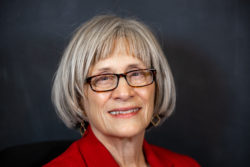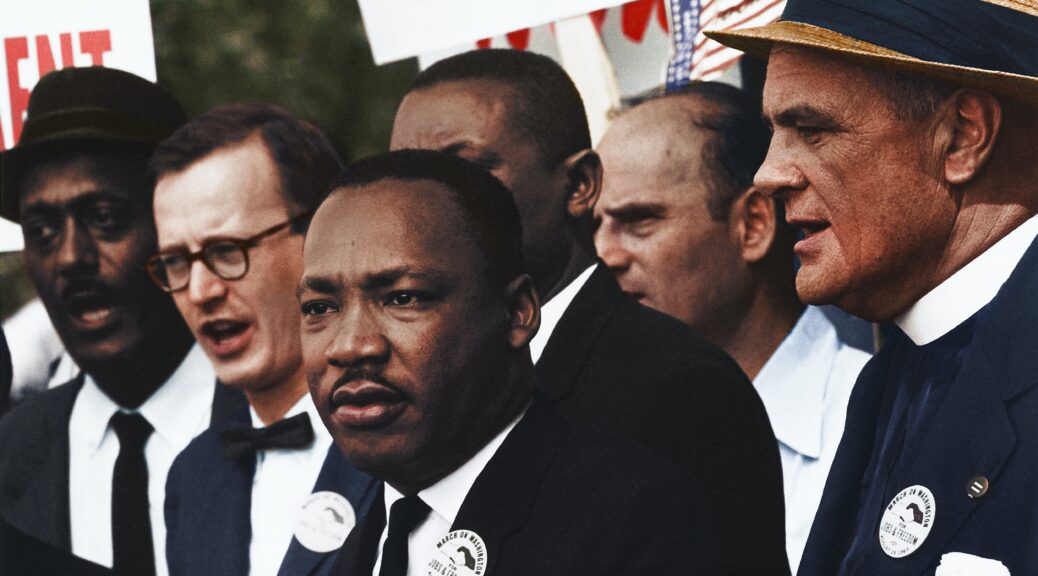
It was an honor to share my perspective as a Jew and diversity professional at Chattanooga’s MLK interfaith service commemorating The Rev. Dr. Martin Luther King Jr. That event was 7 years ago but my passion for diversity is a lifelong legacy from my father, a US World War II military intelligence officer whose letters describing Naziism reside in Cincinnati’s American Jewish Archives. Having dedicated decades to tikkun olam, Hebrew for ‘repair of the world,’ I resonate to this day to Rabbi Abraham Joshua Heschel’s words, “Racism is man’s gravest threat to man – the maximum of hatred for a minimum of reason.”
In the sixties, I protested along with my fellow Jewish high school students, joining civil rights marches and SNCC, the Student Nonviolent Coordinating Committee. In the seventies, I created partnerships between Harlem and Wall Street to address race-based economic inequities by mentoring young people. Yet, despite successful Black-Jewish collaborations, I recognized the MLK wisdom in King’s quote, “All progress is precarious, and the solution of one problem brings us face to face with another problem.”
In the eighties, urban planning was my focus and I designed a masters degree to address cultural and economic divisions. I pursued tikkun olam through the Chicago’s Black-Jewish Coalition when Harold Washington was the city’s first African-American mayor. In the nineties, the Oklahoma City bombing compelled me to become the community liaison for the Jewish Federation in Tulsa. The city was in a region that routinely saw KKK rallies, white supremacists, secret paramilitary groups, neo-Nazi associations, and self appointed messiahs who claimed Black and Jews were sub-human.
Trained by the FBI in security, I oversaw the safety of the Jewish Federation campus. As the number of attacks on black churches increased, I served on the executive committee of Oklahoma’s Say No To Hate interfaith coalition. We refused to be intimidated, inspired by the MLK quote, “The ultimate tragedy is not the oppression and cruelty by the bad people, but the silence over that by the good people.”
With the year 2000 approaching, I came to Chattanooga as executive director of the Jewish Federation. One of my first projects was to work with Bessie Smith Hall on a joint Jewish-African-American cultural event for Hamilton County students. Packed school buses arrived at Bessie Smith to experience the singing, music and dancing performances. The project’s planning committee understood that the Arts provide windows into our history and cultures that instruct, connect, and motivate emerging leaders.
As Chattanooga went global, I formed the Women’s Council on Diversity, now the Tennessee Chapter of G100 Women Leaders. We created models for multicultural projects like the Youth Multicultural Video Contest at Volkswagen and the Teen Global Leadership Class through the Urban League. I documented them in the American Diversity Report because, as Jewish mystic Yehuda Berg wrote, ”Words have energy and power with the ability to help, to heal…”
Interviewing historic Chattanoogans, I was inspired by the powerful words of civil rights icons including Pastor Paul McDaniel of the Second Missionary Baptist Church and Ruth Holmberg, Editor-in-Chief of The Chattanooga Times. At the MLK interfaith service, I represented Mizpah synagogue, founded 150 years ago by Holmberg’s family. Holmberg was a major force behind Chattanooga’s Black-Jewish dialogue. That dialogue is no longer, unfortunately, but the memory prompted me to create an updated version of the Black-Jewish Dialogue.
We faced a harsh, strident environment 7 years where dialogue had given way to diatribe. Our emotions bounced from confused and scared, to angry and despondent. Heartbreakingly, a swastika recently defaced Cincinnati’s American Jewish Archives. But I would not be deterred then and I won’t stop now.
Today, our chaos centers around the Israel-Hamas war, the growing negativity regarding Diversity, Equity and Inclusion, and the increased antisemitism and Islamaphobia on campuses and around the world.
Centuries ago, rabbis taught: “It’s not your responsibility to finish the work of tikkun olam, but you are not free to desist from it either.” The Jewish perspective on MLK continues to include passionate visionaries pursuing the humanity so compellingly stated in the MLK vision, “I Have a Dream.”
Let us use the interfaith space to nurture community activism, foster urban planning, create multicultural projects, magnify the power of words, and pursue tikkun olam together. And let’s bring together all those who serve diverse communities to share their skills and experience. Much of those people skills were either lost or ignored during the pandemic. Now, they’re needed more than ever and must be honored, valued, and practiced.
Photo by Unseen Histories on Unsplash
- UNTOLD Stories of a World War II Liberator - April 10, 2024
- International Women’s Day: Past and Present Converge – by Deborah Levine - April 5, 2024
- Catalyzing Inclusive Urban Economies- by Ainesh Dey - March 30, 2024


I feel within your comments a deeply inspired thrust for repairing one of the most dire struggles for humanity worldwide. The intensity of those issues as voiced by MLK previously are present today as in the past, however progress and shifting narratives are somewhat murky at times to see clearly on a worldwide scale. Healing is necessary on all sides. Your efforts are to be applauded.
Wonderful, on-point article for our time!